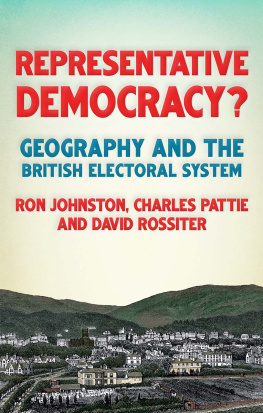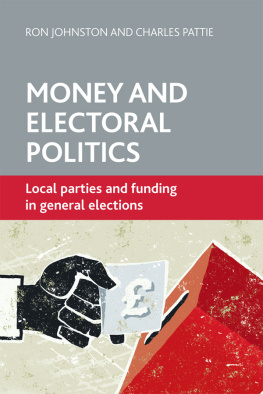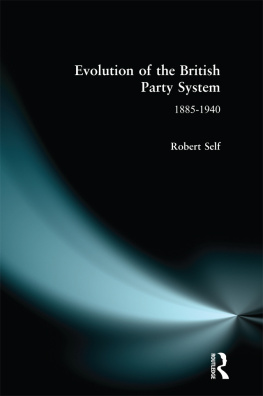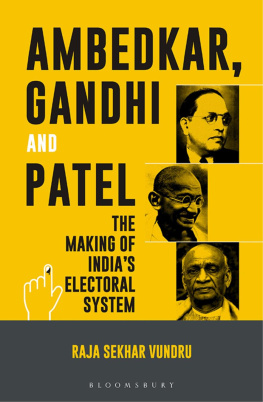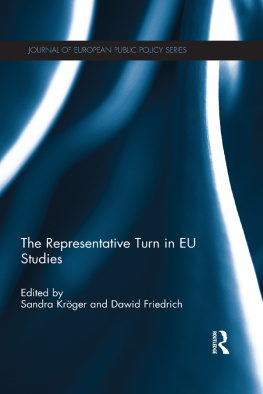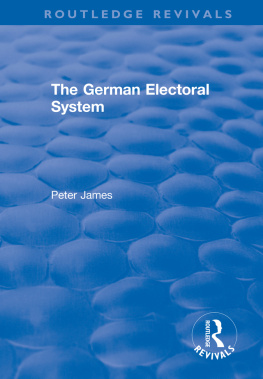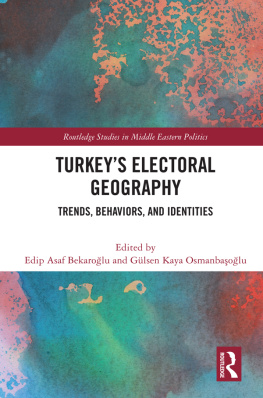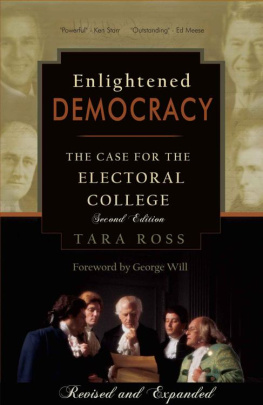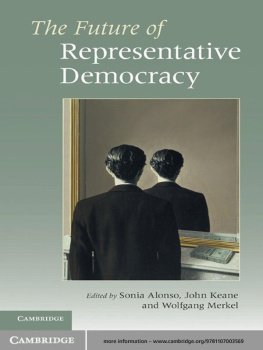Copyright Ron Johnston, Charles Pattie and David Rossiter 2021
The right of Ron Johnston, Charles Pattie and David Rossiter to be identified as the authors of this work has been asserted by them in accordance with the Copyright, Designs and Patents Act 1988.
Published by Manchester University Press
Altrincham Street, Manchester M1 7JA
www.manchesteruniversitypress.co.uk
British Library Cataloguing-in-Publication Data
A catalogue record for this book is available from the British Library
ISBN 978 1 5261 5181 0 hardback
First published 2021
The publisher has no responsibility for the persistence or accuracy of URLs for any external or third-party internet websites referred to in this book, and does not guarantee that any content on such websites is, or will remain, accurate or appropriate.
Cover image: Great Malvern, Worcestershire, England (Poweroffforever/Getty Images)
Typeset by Servis Filmsetting Ltd, Stockport, Cheshire
Either individually or together, we have been studying aspects of the UKs electoral system for more than four decades, focusing in particular on how parliamentary constituencies have been defined and the impact of that geography on election results. This has resulted in two major monographs, an overview volume, and a substantial number of academic papers, reports, blogs and other publications. Given that output, why another book?
There are two reasons. The first is that a lot has happened in the last twenty years, especially since the Conservatives achieved a significant change to the rules by which constituency boundaries are determined in 2011. Although we have written extensively on those changes and their potential implications they have not yet been finally implemented that material has not been drawn together in a single volume. It is now, in a series of chapters that outlines how the electoral system has evolved since 1832, with major decisions concerning its form made in 1885, 1944 and perhaps, if the changes ever finally go through in 2011. The book thus provides, in its central chapters, an outline history of what the British call redistributions the redrawing of constituency maps over nearly two centuries.
The second reason for this book is that in our earlier work the political implications of those redistributions have only been lightly addressed. The United Kingdom has what is generally known as a representative democratic form of government. But what is understood by that, what should a representative system deliver, and how well does the system that has evolved since 1832 meet those criteria? Does the electoral system, and in particular its geographical elements the academic discipline through which, in various forms, all three of us emerged impede that goal? When we were initially contemplating this book (at about half the length it now fills!) the suggested title was (un?)Representative democracy, but we then simplified it to Representative democracy? with the question mark key. Hence, more so than in our other books, we address the issues of representation in some detail, ask to what extent the electoral system influences the achievement of a representative democracy, and also ask whether other electoral systems other geographies might be better suited to that end.
As we wrote this book, political events intervened and made us reconsider some of its contents. With the basic rules for constituency redistributions having been rewritten in 2011, we expected to be able to evaluate that change. Its implementation had been delayed by political decisions in 2013, when a nearly completed redrawing of the constituency map was halted. Another redistribution began three years later and was completed in autumn 2018 but a now minority Conservative government was unwilling or unable to take the final step and implement the changes that the Boundary Commissions proposed. The general election of December 2019 was thus fought on pre-existing boundaries, and, following a clear Conservative victory, the new government chose to shelve the Commissions 2018 recommendations and instead introduced a new Parliamentary Constituencies Bill 2019-21, retaining many of the key changes of the 2011 legislation but reverting to 650 seats and moving from a 5-year to an 8-year redistricting cycle. While we have endeavoured to include analysis of the 2019 election in our analyses, as this manuscript goes to press the Bill is still wending its way through Parliament. Its provisions are not yet final during the course of its passage an amendment to add another protected seat, Ynys Mon, has been accepted by the government, for example and are not yet law. That said, as the new Bill does not change the basic principles of the 2011 legislation, our analyses of the 2011 Act are likely to apply to it too. The book is as up to date as we could make it in the autumn of 2020.
During this forty-year journey we have benefited greatly from the assistance, involvement and support of a large number of people, not least former graduate students David Cutts, Ed Fieldhouse, Andrew Russell and Andrew Schuman. Danny Dorling was closely involved in our work at a critical stage, along with Ian McAllister and Helena Tunstall, as have been Galina Borisyuk, Colin Rallings and Michael Thrasher. Along the way we have collaborated with Justin Fisher, Todd Hartman, Kelvyn Jones and David Manley, and many others have provided help and support without which we could not have achieved what we have. Our work on the Boundary Commissions has been much aided by their Commissioners and, especially, their staffs who have generously provided material and other assistance; we have also gained much from political party officials, notably Greg Cook and Roger Pratt, and from politicians, not least Lords Rob Hayward, David Lipsey, Chris Rennard and Paul Tyler. To them and many others who have encountered us on the way our deepest thanks, along with the patient and helpful staff at Manchester University Press who have seen the project through its final stages.
Ron Johnston was, as ever, absolutely central to researching and writing this book. Sadly, he died suddenly just before we received the proofs. So David and Charles dedicate the book to Ron, our muchloved friend, colleague and mentor, as a paltry thanks for many very happy years working together.
Two party leaders were happy on the morning after the United Kingdoms 12 December 2019 general election; another resigned immediately, one vowed to establish a new party, and the Leader of the Opposition acknowledged that his days as leader were numbered. Their responses reflected not only how successful their parties had been in winning votes but also how the electoral system had translated those votes into seats, in large part because of geography. Geography matters in so many aspects of life; the creation of a representative legislature in this case the UK House of Commons is a clear example of that.
Of the contented party leaders, none was more so than the Prime Minister, Boris Johnson. His Conservative Partys share of the vote had only increased by a modest 1.1 percentage points (to 43.6) but this was sufficient to take the number of Conservative MPs to 365, an increase of 5.7 percentage points compared with 2017 and delivering in his words a stonking majority. The disproportionate return was a reflection in part of the demise of his main opposition, but also of the shift in the partys geographical support. The UKs electoral system typically bestows a winners bonus on the most popular party and a further bonus on those whose supporters are in the right places.


